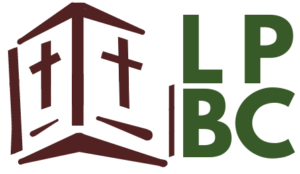Light My Way
105 Thy word is a lamp unto my feet, and a light unto my path.
106 I have sworn, and I will perform it, that I will keep thy righteous judgments.
107 I am afflicted very much: quicken me, O Lord, according unto thy word. (Psalm 119:105–107).
What is God’s will for my life? Am I even on the right path? When I come to a fork in the road, which choice should I make?
This is how so many of us feel about God’s will: confused. We want clarity; we feel confusion. The good news is that God doesn’t leave us in the dark. Not only does He give us a path, but He also provides a lamp to light the way. All in favor of light? Then consider these three, absolutely guaranteed, path-proven guidelines to walking in the light of God’s will.
First, find God’s will in His Word. According to Psalm 119:105, “Thy word is a lamp unto my feet, and a light unto my path” The Bible lights up your path so you can navigate the way forward.
When you are uncertain or feel like you’re in a dark place, turn on the light of God’s Word. Make it your daily practice to read the Bible so that you’re not just reading random snippets but beginning to know where to find the answers. Keep a list of particular passages that have given you direction. The Scriptures help you see where your feet are standing and where the path leads. God may not show you miles ahead on the path, but He’ll show you the next step.
Second, seek godly counsel. Your second source of light is advice from wise Christians. Proverbs 12:15 teaches, “The way of a fool is right in his own eyes: but he that hearkeneth unto counsel is wise.”Too often we’re tempted to think, I don’t want anyone’s input! I already know what I want to do. If I ask for advice, someone might tell me my plan is a bad idea. The foolish person doesn’t seek or listen to counsel from others before making an important decision. Don’t be indecisive—or decisive on your own.
Who are the wise, trustworthy advisers in your life? Who are the solid Christians who want what’s best for you? Who cares more about what God wants for you than what you selfishly want? Advisers don’t coddle you; they coach you.
Third, follow the Spirit of God. Jesus didn’t leave us here as orphans. He gave us the Holy Spirit to be with us forever (John 14:16–18). He’s working on us and in us! “For it is God which worketh in you both to will and to do of his good pleasure.” (Philippians 2:13). Many people claim to want the Holy Spirit’s guidance, but they skip steps 1 and 2. They don’t fill their souls with God’s Word, and they don’t seek godly counsel. Yet these are the very tools the Spirit of God uses to guide us.
If you don’t fill up on the Word and wise counsel, then you’re not giving the Spirit much to work with. You’re left with only a subjective sense of “the-Lord- told-me- to-do- this.” God will never tell you to do something contrary to His Word or counter to true, godly wisdom. If you insist on deciding against God’s Word and wise counsel, then the results will be entirely your own fault.
Together, these three guidelines provide a powerful decision-making grid. Start with Scripture. Include wise counsel. Rely on God’s Spirit. Then you’ll know your feet are on God’s path, and He will light your way.
